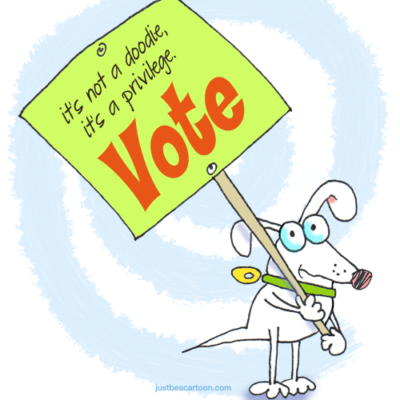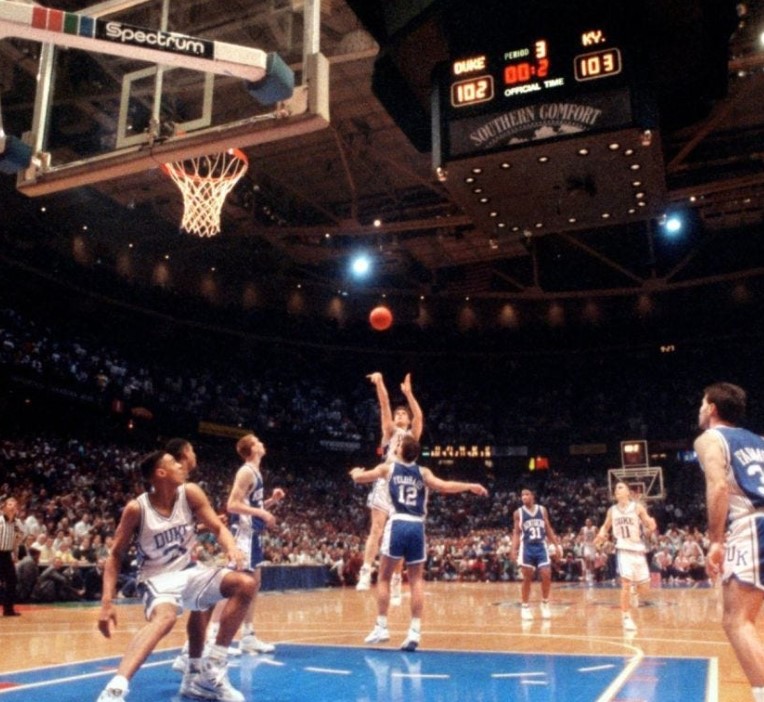This is it. The last blog before the big day. I know I have been threatening it for some time, but this is the day I have to actually make my prediction in this godforsaken Alberta election. I can’t avoid it anymore So I’m going to do that. Soon. But first, I feel I must veer off topic and tell a wee story.
This blog started about four years ago. Under oddly similar circumstances. You see, at that time, in 2015, Alberta was going through an election, the economy was under duress, the Conservatives were being led by a former Federal Member of Parliament (the late Jim Prentice), math was hard and not yet discovery and the NDP had no idea they were about to be handed the keys to the kingdom. But it happened. Oh, and the Flames were in the playoffs (Go Flames Go!).
And I was as shocked as anyone in Alberta when it happened. So shocked that I felt compelled to pound on the keyboard a bit and send out the infamous “Blog #1” – the one that started it all. So really, when you think about it, I have Rachel Notley to thank and you have Rachel Notley to blame for being in receipt of this thing on a weekly basis for the past four long years. Do with that what you will. If it impacts your voting decision, I won’t be offended.
As luck would have it I was way less verbose back then so I can safely cut and paste an excerpt here because it is timely:
- The big news of the week by far was the election in Alberta of the provincial NDP party led by Rachel Notley, toppling the 44-year reign of the Progressive Conservatives. While the scale of the loss was unexpected, the result had generally been predicted by polls leading up to the vote. The NDP platform pledged to unwind most of the PC budget proposals and pursue a more aggressive tack with regards to certain policy matters.
- As a financial advisory and M&A firm involved in the energy sector, we are mindful of the uncertainties created by a change in government and directional shifts in how key industries are perceived, however our position is to take a wait and see approach. The new governing team requires time to get up to speed on the various files and has pledged to work with industry to achieve pragmatic outcomes to their various policy initiatives. At this point, anything but the benefit of the doubt is speculative. Our advice to both buyers and sellers is to stay the course and proceed with cautious purpose – good deals will always get done.
- At the time of writing, the Calgary Flames were still undefeated in the playoffs with a provincial NDP government.
There you have it. Remain calm was the message and for the most part the province did. The Conservatives and Wild Rose were effective in their opposition, and the NDP did become more intelligent on the energy file even if world events and various governments conspired against them.
At the time I told anyone who would listen (not many) that it wasn’t a slam dunk for the PCs or Wold Rose or some conservative union to win back the government in 2019 and that if the NDP played their cards right, the path to victory was via a pipeline, a sector recovery and a pledge to cut taxes in a pre-election budget. Save for the economy, this could have happened. I also said that for the Conservatives to win, they would have to unite the party, eliminate the bozo eruptions and, crucially, win the women’s vote which they lost in 2015.
So now here we sit and none of those conditions are met for either party.
No Pipeline. Stalled recovery. No tax cut. The unification of the conservatives was chaotic and they are still fighting each other. The bozo volcano resembles Pompeii at times and polling data shows the women’s vote is similar to what it was before.
And the net result is this mud-slinging slug-fest election. It’s been a nasty campaign by any measure.
Alright, on to the good stuff.
The following, which I am loosely theming the “Alberta Election for Dummies” is the lay of the land for the benefit of any non-Canadian, and quite frankly non-Albertan reader who wants to know what is going on in this election, who’s who and all that jazz.
The Parties:
With apologies to some of the smaller parties, there are four main parties who have incumbent representation in the legislature and are running candidates in every riding.
Alberta Party – Wonkish do-gooders with hearts of gold. And some goofy ideas to go with the good ones. Mostly made up of disaffected conservatives and Liberals, with some notable NDP cross-over, this is the mushy middle. Not a vote splitter, they are a vote “bleeder”, likely taking equally from all the parties. The leader is the former mayor of Edmonton and one time PC Health Minister Steven Mandel. At 70 plus, he’s up there but has lots of energy and commands attention. Think Bernie Sanders with a sense of humour.
Liberal Party of Alberta – Tone deaf party that really should have changed their name decades ago. Only party proposing a sales tax. Only party projected to win one seat. Did I mention tone-deaf? In all seriousness, I have never understood why there hasn’t been a merger between the Liberals and the Alberta Party. The Liberal Party is led by David Khan who is young, a constitutional lawyer and openly gay. If he wins his seat, he will have staying power.
NDP Party – Incumbent government. Supremely talented at doling out the goodies prior to an election campaign and then promising more of the same during the campaign. Surprise winner of the last provincial election, drawing the short straw of overseeing the worst economy in close to 50 years. Claims the moral and ethical high ground on each and every progressive issue of substance and isn’t afraid to twist things to prove it. Known for not delivering pipelines and avoiding direct questions about the economy. The NDP is led by Rachel Notley who is intelligent, compassionate and, fortunately for the NDP, a consummate politician without whom the NDP would not have won in 2015.
UCP Party – Born of the self-immolation and internecine warfare of both the former Progressive Conservative Party of Alberta and the Wild Rose Party (really, why couldn’t they just call themselves the “Less Progressive Conservative Party of Alberta – it would have made things simpler), the UCP is an attempt to reunite the entire right spectrum of the Alberta body politic into one cohesive entity – or at least share a name. While the jury is out on how successful this will be, it is obvious that it wouldn’t exist without the efforts of its leader – Jason Kenney (the hardest working man in politics TM). This part claims to be the business and economy friendly party and promises to fight tooth and nail for Albert and the energy sector at every turn. Unfortunately for Kenney, the party comes with a lot of well-documented baggage. Probably more than Jason Kenney expected, including his own. Jason Kenney is a highly capable leader – bright, articulate and has a track record of winning most politicians can only dream of.
The Electorate and The Issues
OK, let’s meet the electorate and learn about the issues.
Alberta’s electorate is intriguing in many ways. A relatively balanced split between rural and urban, Alberta is increasingly ethnically diverse and generally younger than other provinces. This makes us hard to predict and the issues are all over the place. So I’m going to try and combine everything into one big word salad.
Oh, wait, there does appear to be one unifying characteristic of the electorate that crosses party lines. Everyone is mad.
Alberta in general is mad. Mad at the NDP. Mad at the UCP. Mad at Trudeau. Mad at BC. UCP’rs are mad that their party is experiencing the same so called bozo eruptions as the Wild Rose party. Mad that the next right of centre alternative is the Alberta Party whose policy platform is an equal mix of inspiration and insanity. Alberta Wild Rosers are mad that the weak-kneed pseudo liberals of the former PCs are dragging their grass-roots party to the centre. Alberta NDP’rs are mad that their government is pandering to the energy sector, not moving fast enough on climate change and has held the line (recently) on public sector wages. Alberta Partiers are mad they aren’t being treated as a 3rd party option.
Albertans are mad there isn’t a pipeline. They are mad that Canadian and Alberta oil and gas equipment, companies, know-how and people are leaving for the United States. They are mad the Permian is an investment sucking black hole of profitless disappointment while our inability to get product to market leaves world beating resources in the ground and company share prices languishing at less than 50% of asset value. They are mad that day rates in North Dakota are sometimes as much as 50% higher than they are here. They are mad they have to chase that work, but they have to feed their families, who are in turn mad that they are leaving for points south. They are mad at oilsands emissions caps. They are mad at oilsands. They are mad that curtailment was needed to fix prices. They are mad at a lack of investment. They are mad at energy majors and international players packing up and leaving. They are mad at vacancy rates in Calgary.
They are mad at rampant unemployment. They are mad at underemployment which is almost worse than unemployment. They are mad that their neighbours and their neighbours’ cousins are still looking for work 4 years after getting laid off. They are mad their taxes have gone up federally. Provincially. Municipally. They are mad at carbon taxes. They are mad at rising liquor, wine and beer taxes. They are mad that lentil taxes have gone up.
They are mad that social issues that have been laid to bed continually are challenged. They are mad the national media perpetuates stereotypes about their province. They are mad at being told on social media that if they vote one way they are socialists who want to turn Alberta into Venezuela and if they vote the other, they are heartless white supremacist bigots who want to turn Alberta into late 1930’s Germany. They are mad at new farm rules, child care that hasn’t gone far enough or gone too far. They are mad about a failing education system, rising class sizes, buses and discovery math (even though no one really knows what it is)
They are mad at oil prices. They are mad at natural gas prices. They are mad at gasoline prices. They are mad at food prices. They are mad at Justin Trudeau for failing to get their TMX built. They are mad at Stephen Harper for hanging Northern Gateway out to dry. They are mad about Energy East and they are mad about the on again, off again Keystone XL expansion. They are mad Line 3 is being punted down the line. They are mad the NEB is being packaged off to Ottawa. They are mad at Trump.
They are mad about being held hostage to First Nations consultation. They are mad at First Nations being shut out of investment opportunities. First Nations Albertans are mad that they get scapegoated when trying to protect their traditional rights, mad they get left out of investment opportunities, mad they don’t get consulted properly on infrastructure and development, mad their communities get left behind if there are no resources to exploit, mad at poverty and mad at being used as photo-ops. They are also mad at the Federal Government.
Albertans are mad at oilsands targeted west coast tanker bans. They are mad at federal bills guaranteed to choke investment in energy infrastructure. They are mad at 5 conditions from BC. They are mad at Burnaby. They are mad at the BC NDP for blocking TransMountain and not supporting the Alberta NDP. In fact, when it comes to BC, they are mad their vacation homes are being targeted for tax reasons, they are mad about LNG vs oilsands hypocrisy and they are generally mad at anyone in power. (Just to be clear – no one ismad at NE BC which deserves the lift that LNG is going to give that region and by extension Alberta, mainly because most Albertans consider the Eastern parts of BC as Albertans in everything but name.)
They are mad at what they see as a PMO and federal leadership so fixated on Quebec that it is ignoring, continuously, its’ responsibility to energy workers across Alberta. They are mad at an equalization system that reallocates federal tax money out of once high paying Alberta and hands it to other provinces that seem to not give a crap.
Phew. Mad.
In summary, mad. Sometimes just for the sake of being mad. The downturn has gone on too long and the structures and parties and leaders who are supposed to fix things can’t seem to get it done. And it’s taken a bright, energetic, forward thinking, positive can-do province and populace and dragged them down. We need a lift.
But, what does it mean for the election? Is the anger evenly distributed? How do people vote their anger?
Well, to win Alberta, you need 2 of the three fairly homogenous blocks to win a majority. These are Edmonton (20 seats), Calgary (26 seats) and rural Alberta (call it 25 seats) with the balance of the seats (16) coming from smaller urban centres.
In the last election, the NDP swept Edmonton and the smaller urban centers like Lethbridge, Red Deer and Medicine Hat, carried a few seats in rural Alberta and rode the Wild Rose/PC vote split to victory by carrying half of Calgary.
This time around there is very little doubt that the NDP’s power alley is in Edmonton. Edmonton has a long tradition of leaning more progressive than the rest of the province. There’s no magic to this – Edmonton is more of a government and union town, traditional supporters for the NDP. Expect Edmonton to stay orange. The UCP thinks there are a number of seats that could turn blue and is investing heavily there, but assume only minor changes and maybe an Alberta Party seat.
Similarly, there are no real plausible scenarios for the NDP to make any gains in rural Alberta. They may hang on to a seat or two in urban centres like Lethbridge where they have some strong MLA talent, but the farm bill and a general lack of interest in rural issues by the NDP puts their popularity at risk. And it goes without saying that areas like Drayton Valley, Whitecourt, Lloydminister, Fort Mac, Red Deer, Bonnyville and others that have been quite literally eviscerated by the downturn will not see an orange sunrise. There is a good chance the NDP is wiped out in these areas.
Call that a draw.
That leaves Calgary, home of the vote split sandwich as the deciding factor in the election. Just. Like. Last. Time.
In Jason Kenney’s favour is the fact that the lion’s share of the corporate pain and anger is centred right here. It’s evidenced by an unemployment rate being the highest in Canada. It’s evidenced by a 25% – 35% downtown office vacancy rate. It’s evidenced by an absurdly high unemployment rate for men aged 18-30, workers who might typically be out in the field working a rig. It’s property values that have never recovered from the downturn and a housing market in the dumpster.
On the flip side, Calgary today is also a dynamic, diverse and, dare I say it, increasingly progressive city. One only needs to look at city council to get that. It is much more in the center than when Jason Kenney won his first election as a Reform Party MP back in 1997 and he ignores that at his peril.
Social issues matter here. The NDP does a good jog here. The economy. Not the NDP calling card. The ugliness that seems to be hidden in some areas of the UCP is causing a real crisis of conscience in many physical and online communities.
Calgary’s contribution to the UCP was more PC than Wild Rose, so the transition has been difficult. This was expected in a merger of the more right wing and progressive side of the Conservative movement but still hard. Many expect that in time the more hard right edges will soften and come back to the centre but in all fairness, many voters don’t want to take that chance right now so they will vote against their perceived economic best interests for the next best thing.
And really, there is talent across the board in all the parties. Greg Clark is a capable MLA with the Alberta party. He also has the biggest signs. David Khan has already been mentioned. Many NDP MLAs have served their constituencies well. My own MLA, who has served in opposition for the last term, comes from the PC world. He is smart, capable, cares about his constituents and isn’t carrying the baggage that other candidates are. He does a great job and is entirely deserving of support.
My gut is that ultimately it’s going to come down to the economy. It’s inevitable. It’s the number one topic of conversation pretty much anywhere you go in Calgary and Alberta – has been for the past four years. And the business community has a powerful voice.
Can Jason Kenney fix things on Day 1? Of course not. That was never the expectation. No one can. But his focus is in the right place. People may not agree with all his policies, I for one have been clear that I think his approach to crude by rail needs a change and, dirty little secret, I think if we’re going to have a carbon tax, let’s have a home-made one. But overall, his message is unapologetically pro-business, pro oil and gas and very much pro Alberta. And that resonates.
Rachel Notley also makes a compelling case. I like her. Everyone likes her. She is a pragmatic NDP’er in the mold of Roy Romanow in Saskatchewan. She cares about people and the province. You can tell. It’s one of her many gifts. Her diversification strategy to process resources here makes sense – even Jason Kenney agrees!
But the reality is that the business community has lost faith in the NDPs ability to deliver. And the investment community has lost faith in Canada’s and Alberta’s energy sector and our prosperity has suffered. And as a result all resultant anger is, rightly or wrongly, directed at the NDP.
I have to think that if Trudeau hadn’t blown it and actually given the NDP a pipeline, Rachel Notley likely would be a winner.
But he didn’t. And she’s going to pay the price.
So, Calgary goes UCP and sends Jason Kenney to Edmonton.
You heard it here first.
50 seats for the UCP, 33 for the NDP, 3 for the Alberta Party and one for the Liberals.
Buckle up. It’s about to get really interesting.
Also – Vote early! Vote often! It’s the best way to support your candidates.
Go Flames Go.
Prices as at April 12 (April 5), 2019
- The price of oil was up this week on modest production gains and supply concerns.
- Storage posted an increase
- Production was up
- The rig count in the US was up
- Injections to storage were flat with expectations for gas. The market was unmoved
- WTI Crude: $63.78 ($63,26)
- Western Canada Select: $55.36 ($55.06)
- AECO Spot *: $1.29 ($0.20)
- NYMEX Gas: $2.648 ($2.664)
- US/Canadian Dollar: $0.7481 ($0.74975)
Highlights
- As at April 5, 2019, US crude oil supplies were at 456.5 million barrels, an increase of 7.0 million barrels from the previous week and 27.9 million barrels above last year.
- The number of days oil supply in storage is 28.5 compared to 25.4 last year at this time.
- Production was up for the week at 12.200 million barrels per day. Production last year at the same time was 10.525 million barrels per day.
- Imports fell from 6.763 million barrels to 6.599 million barrels per day compared to 8.650 million barrels per day last year.
- Exports from the US fell to 2.349 million barrels per day from 2.723 million barrels per day last week compared to 1.205 million barrels per day a year ago
- Canadian exports to the US were 3.424 million barrels a day, up from 3.212
- Refinery inputs rose during the during the week to 16.100 million barrels per day
- As at April 10, 2019, US natural gas in storage was 1.155 billion cubic feet (Bcf), which is about 30% lower than the 5-year average and about 14% less than last year’s level, following an implied net injection of 25 Bcf during the report week
- Overall U.S. natural gas consumption fell 19% during the report week
- Production for the week was down 1%. Imports from Canada decreased 1% from the week before. Exports to Mexico decreased 1%
- LNG exports totaled 17.4 Bcf
- As of April 12, 2019, the Canadian rig count was down 2 at 66 (AB – 48; BC – 15; SK – 1; MB – 0; Other – 2. Rig count for the same period last year was 109.
- US Onshore Oil rig count at April 12, 2019 is at 833, up 2 from the week prior.
- Peak rig count was October 10, 2014 at 1,609
- Natural gas rigs drilling in the United States was down 5 at 189.
- Peak rig count before the downturn was November 11, 2014 at 356 (note the actual peak gas rig count was 1,606 on August 29, 2008)
- Offshore rig count was up 1 at 23.
- Offshore peak rig count at January 1, 2015 was 55
US split of Oil vs Gas rigs is 80%/20%, in Canada the split is 68%/32%
Drill Bits
- Chevron made an offer to Anadarko at a 40% premium. Holy crap.
Trump Watch: An ominously quiet week.









